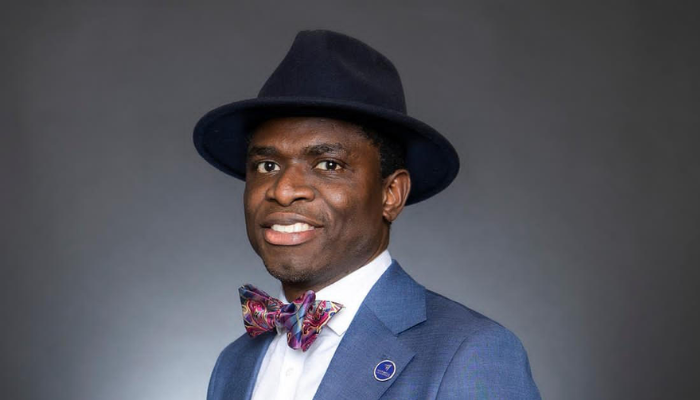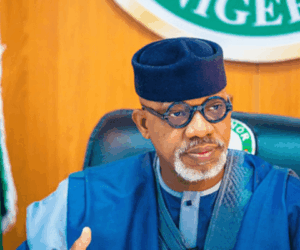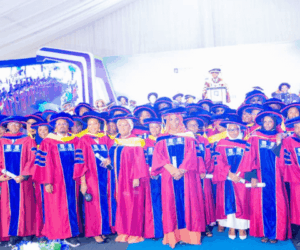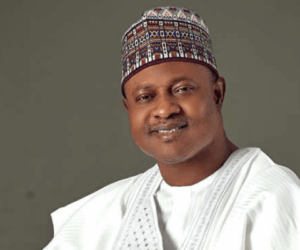Dr Tokunbo Fasuyi, founder of Aegis Private Health Consultants and a UK-trained physician with a passion for data and technology, believes the future of healthcare lies in personalisation, prevention, and prediction. His philosophy is that every individual deserves a health manager, just like a wealth manager, someone who understands their biology, tracks their data, and anticipates risks before illness strikes. In this interview with BusinessDay, Dr Fasuyi explains why he thinks healthcare must evolve beyond hospital visits and how Aegis is helping people take full control of their health. Royal Ibeh brings the excerpt…
You said healthcare should be personalised, predictive, and data-driven. What does that mean in practice, and how does it differ from traditional healthcare?
Traditional healthcare is reactive; it waits for people to get sick. That model no longer fits the world we live in today. We now have access to powerful data about our bodies through wearables, advanced lab tests, and even genetic analysis. Instead of waiting for symptoms, we can use this data to predict and prevent illness.
Read also: SQHN 2025 Conference: Stakeholders call for local action to reimagine healthcare quality amid gaps
Personalised, predictive, and data-driven healthcare means understanding each individual as a unique system. Two people might have the same diagnosis but require completely different management plans because their genes, lifestyle, and stress responses are different. At Aegis, we combine medical science with technology to build a full health profile for every client. That helps us anticipate potential issues before they appear and guide people toward better sleep, nutrition, and performance. The goal is not just to live longer; it is to live healthier and stronger for longer.
You often compare your model to private banking. Why do you think healthcare needs that kind of approach?
Healthcare needs that kind of approach because health is as important as wealth, probably more. The way most people manage their health today is like leaving their finances to chance. They only check when there is a crisis. But wealthy people have portfolio managers to monitor their assets daily; why shouldn’t your health be managed the same way?
At Aegis, we act as a health concierge. Each client has a dedicated physician who oversees everything, from medical appointments to specialist referrals, lifestyle plans, and lab coordination. We build a health portfolio for each client, reviewing it regularly and updating it based on new data. It’s proactive rather than reactive.
This approach is especially relevant for executives, athletes, and entrepreneurs who push their bodies constantly. When your performance is linked to your health, you can’t afford to guess. You need precision and continuity. That is what we provide: a private banking model for the human body.
You have raised alarms that Gen Zs are ageing faster than millennials. What is happening, and what does your data reveal about this trend?
It is a troubling pattern. We are seeing 25-year-olds with fatigue, anxiety, hormonal issues, and metabolic syndromes that were once common only in middle-aged adults. It is not just about appearance; it is biological ageing.
The biggest culprits are chronic stress, lack of sleep, poor diet, and overexposure to digital screens. Gen Zs live in an always-on world. They are overstimulated and under-rested. Their cortisol levels are high, and many are deficient in key nutrients because of processed diets. That combination accelerates ageing at the cellular level.
The good news is that it is reversible. When you start monitoring your body’s data, like sleep cycles, hormone balance, and blood biomarkers, you can intervene early. We help clients measure their biological age versus their chronological age. Some 30-year-olds test as biologically 40, but with the right interventions like dietary balance, stress optimisation, and better circadian rhythm, we can reverse that trend. Data is the compass; behaviour is the vehicle.
Aegis seems to merge healthcare, technology, and lifestyle in one system. What makes your approach stand out in such a crowded wellness market?
The difference lies in coordination and credibility. A lot of wellness platforms give generic advice like eat more greens, sleep more, and drink water, but they don’t integrate your medical data. At Aegis, we start with science, not slogans.
We conduct a full diagnostic profile that includes advanced bloodwork, genetic analysis, hormone testing, and cardiovascular screening. We then pair that with real-time lifestyle data from wearable devices. Our doctors and analysts interpret the numbers, personalise the plan, and monitor progress continuously. It is a 360-degree model that blends clinical precision with daily guidance.
Think of it as having a command centre for your health. Whether you are in London, Lagos, or Dubai, we monitor your vitals, coordinate with your specialists, and help you make informed choices. We are also building digital tools to automate parts of this process, like predictive dashboards, early-warning alerts, and wellness trackers, all supported by human doctors.
You have practised medicine in the UK and Nigeria. What lessons have you learnt about people’s attitude toward health?
The difference between the UK and Africa is mindset, not medicine. In the UK, prevention is part of the system. You are encouraged to take annual checks, attend screenings, and monitor chronic conditions. In Nigeria, people often wait until things fall apart. We don’t invest in prevention; we respond to emergencies. That has to change.
Technology gives us a massive opportunity to leapfrog traditional healthcare barriers in Africa. Imagine a system where a simple wearable can alert your doctor to early signs of hypertension, or where communities receive predictive alerts before a malaria outbreak. Data can save lives at scale if we use it wisely.
At Aegis, our mission is to lead that shift from reactive to proactive healthcare. Africa’s young population is tech-savvy, so the potential is huge. With mobile access, affordable diagnostics, and local health data infrastructure, we can build an entirely new model for preventive medicine, one rooted in awareness, access, and anticipation. The next frontier in medicine won’t be built on hospitals or drugs but on data and understanding.
Read also: How bureaucracy, brain drain break healthcare workers
What is your five-year vision for Aegis and for the future of personalised healthcare in Africa?
In the next five years, my goal is to make personalised healthcare accessible, not aspirational. We are building a model that goes beyond elite concierge medicine, one that uses technology to reach more people, from young professionals to families who simply want better health management.
I want Aegis to become a global reference point for preventive, data-driven healthcare coming out of Africa. We are investing in AI-powered health analytics, expanding partnerships with hospitals and labs, and developing digital platforms that allow continuous health tracking regardless of location.
But beyond infrastructure, my real goal is cultural, to change how people think about health. I want Nigerians and Africans to stop seeing healthcare as something you seek only when you are sick. It should be part of daily life, just like checking your bank balance or monitoring your business.
If we can achieve that shift in mindset, we will save lives, reduce hospital pressure, and raise a healthier, more productive generation. Because at the end of the day, prevention is not just good medicine; it is good economics.









